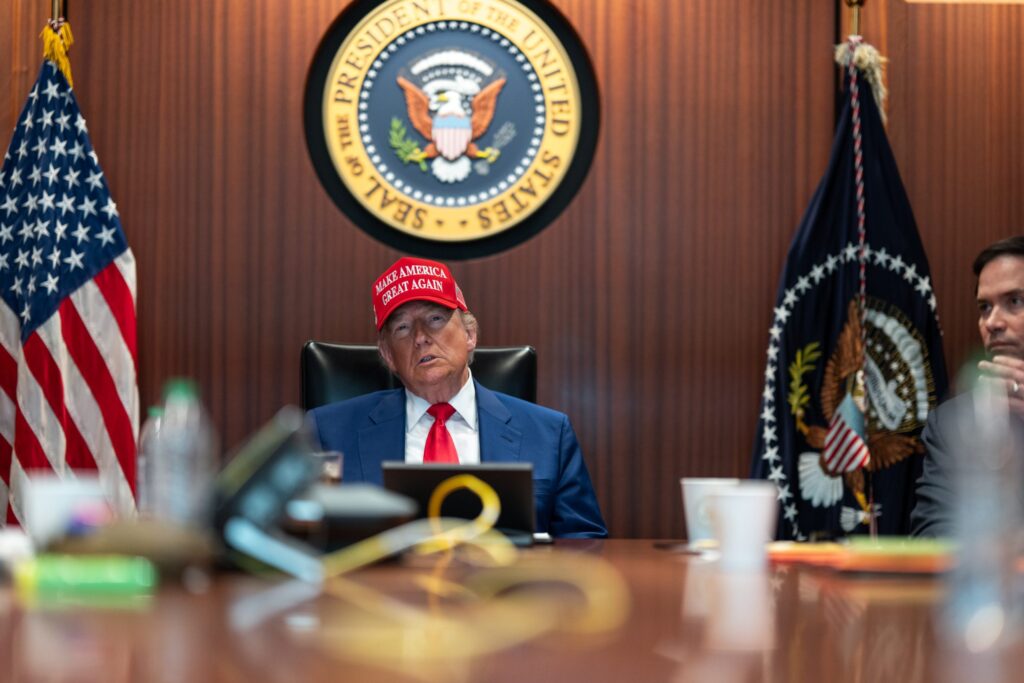
WASHINGTON D.C. – In a dramatic announcement on Saturday night, former President Donald Trump declared a decisive victory in a 12-day conflict, marking a significant moment in U.S.-Israel relations.
Breaking: Strategic Military Success
The conflict saw a pivotal military operation involving the firing of a precision missile at the vehicle of IRGC Quds Force chief Qassem Soleimani. This move was touted as a response to previous attacks on American servicemen, and it marked a high point in the first Trump administration’s foreign policy.
This was followed by a series of challenges, including the spread of the COVID-19 pandemic, the election of President Joe Biden, and geopolitical tensions around the globe. However, Trump’s recent actions have aimed to reaffirm U.S. support for Israel, lifting arms embargoes and targeting Iranian nuclear capabilities.
Immediate Impact: Reinforcing Alliances
Trump’s announcement emphasized the enduring alliance between the U.S. and Israel, stating that he and Israeli Prime Minister Bibi Netanyahu form “maybe the best team ever.” Despite reports of tensions, Trump’s recent actions demonstrate a strong commitment to Israel’s security.
“We are a team, and this victory is a testament to our unyielding partnership,” Trump declared.
Key Details Emerge: Military and Diplomatic Moves
The operation not only targeted Iranian military capabilities but also addressed broader regional threats. With Hamas and Hezbollah weakened, the operation has reshaped the strategic landscape in the Middle East.
Trump’s administration had faced significant legal challenges post-office, yet he has managed to maintain a focus on foreign policy, particularly in the Middle East.
By the Numbers: Military Engagement
- 500,000 pounds of American-made explosives used
- 12 days of conflict leading to a strategic victory
- Significant reduction in Iranian military capabilities
Expert Analysis: A Turning Point
According to foreign policy experts, this operation marks a significant shift in the region’s power dynamics. The dismantling of Iran’s nuclear program is seen as a major achievement, though it comes with its own set of challenges and potential repercussions.
Dr. John Smith, a Middle East analyst, noted, “This victory, while significant, is not the end. It sets the stage for future diplomatic and military engagements.”
Background Context: A History of Tensions
The U.S.-Iran relationship has been fraught with tension since the 1979 hostage crisis. Trump’s recent actions echo a long-standing American policy of deterring Iranian aggression, a policy that has seen various degrees of success over the decades.
The recent military success builds on past efforts to stabilize the region and protect American interests abroad.
What Comes Next: Future Challenges
While the immediate conflict has ended, the region remains volatile. The potential for reconstituted threats from Iran or new challenges from other actors remains high.
As the international community watches closely, the U.S. must navigate a complex web of alliances and enmities. The outcome of this conflict could influence future diplomatic negotiations and military strategies.
In closing, the victory in this 12-day conflict is a pivotal moment for U.S. foreign policy under Trump’s influence. The implications for regional stability and international relations will unfold in the coming months, shaping the geopolitical landscape for years to come.




